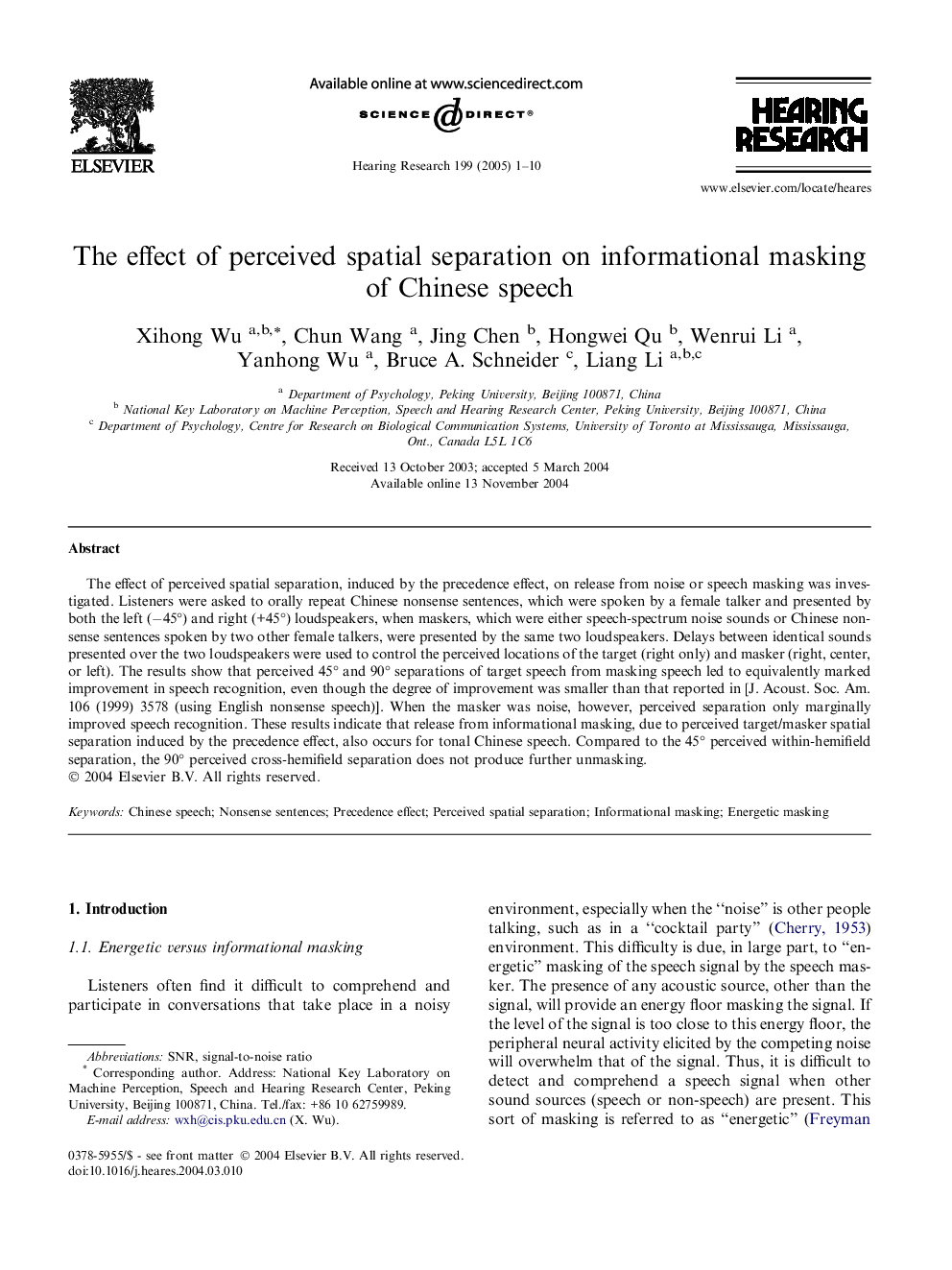| کد مقاله | کد نشریه | سال انتشار | مقاله انگلیسی | نسخه تمام متن |
|---|---|---|---|---|
| 9436501 | 1615699 | 2005 | 10 صفحه PDF | دانلود رایگان |
عنوان انگلیسی مقاله ISI
The effect of perceived spatial separation on informational masking of Chinese speech
دانلود مقاله + سفارش ترجمه
دانلود مقاله ISI انگلیسی
رایگان برای ایرانیان
کلمات کلیدی
موضوعات مرتبط
علوم زیستی و بیوفناوری
علم عصب شناسی
سیستم های حسی
پیش نمایش صفحه اول مقاله

چکیده انگلیسی
The effect of perceived spatial separation, induced by the precedence effect, on release from noise or speech masking was investigated. Listeners were asked to orally repeat Chinese nonsense sentences, which were spoken by a female talker and presented by both the left (â45°) and right (+45°) loudspeakers, when maskers, which were either speech-spectrum noise sounds or Chinese nonsense sentences spoken by two other female talkers, were presented by the same two loudspeakers. Delays between identical sounds presented over the two loudspeakers were used to control the perceived locations of the target (right only) and masker (right, center, or left). The results show that perceived 45° and 90° separations of target speech from masking speech led to equivalently marked improvement in speech recognition, even though the degree of improvement was smaller than that reported in [J. Acoust. Soc. Am. 106 (1999) 3578 (using English nonsense speech)]. When the masker was noise, however, perceived separation only marginally improved speech recognition. These results indicate that release from informational masking, due to perceived target/masker spatial separation induced by the precedence effect, also occurs for tonal Chinese speech. Compared to the 45° perceived within-hemifield separation, the 90° perceived cross-hemifield separation does not produce further unmasking.
ناشر
Database: Elsevier - ScienceDirect (ساینس دایرکت)
Journal: Hearing Research - Volume 199, Issues 1â2, January 2005, Pages 1-10
Journal: Hearing Research - Volume 199, Issues 1â2, January 2005, Pages 1-10
نویسندگان
Xihong Wu, Chun Wang, Jing Chen, Hongwei Qu, Wenrui Li, Yanhong Wu, Bruce A. Schneider, Liang Li,